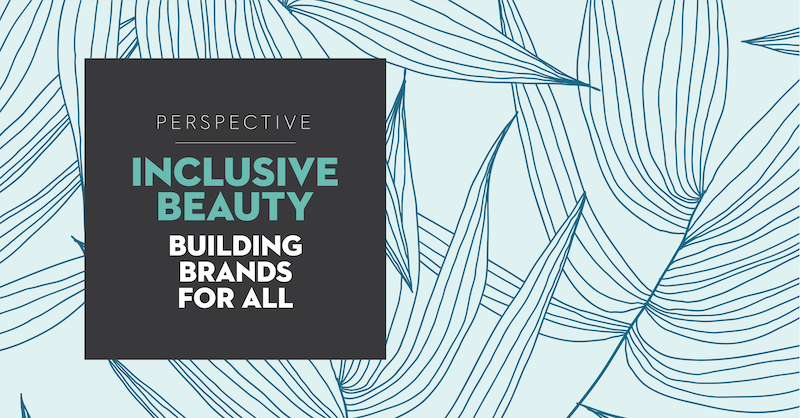
-
We had the pleasure of speaking with one of our talented creatives, Allen Gaoiran, to get his perspective on diversity and inclusion in the beauty industry and its implications on branding and packaging.
As part of the AAPI, LGBTQ, and collective design communities, and as a father, Allen feels both the impact and a responsibility for creating a better, more inclusive future through design.
Read on for Allen’s take on where beauty brands are headed, and why inclusive design is more important than ever.
The calls for change and radical accountability brought on by recent events (including Black Lives Matter, defending LGBTQ+ rights and addressing racism and violence against the AAPI community) have opened a much-needed dialogue and given brands and retailers the opportunity to rethink their approaches to diversity and inclusion.
Diversity and inclusion in beauty branding has expanded in the last few years, and it will only continue to get better. Inclusivity in beauty refers to beauty that caters to all individuals regardless of their attributes or identity: gender, age, size, religion, ability, skin tone, skin type and more. The trajectory of this movement is optimistic and there is reason to believe it will soon become a collective norm. In light of this, the creative approach to branding, packaging design and categorization will also be more inclusive, and a new level of personalization will arise.
The shared experiences of the pandemic strengthened our concept of community and brought the idea of mutual support to the forefront of consumers’ minds. People have found unity in diversity. Beauty brands will take the lead in these conversations moving forward, and will be advocates for promoting diversity and new voices. As this continues to gain momentum, understanding the difference between “specialized” & “underserved” consumers will be more important than ever.
Underrepresented voices will be given a seat at the table to ensure their needs are met. Packaging will engage all senses, not just sight, and will take into account a diverse range of physical abilities. Consumers will look for brands and products that are designed and shared by all.
We are excited to see the strides being made to create products that embrace and represent all communities, ethnicities, expressions of gender and sexuality, physical and developmental abilities and religious observances. Check out the list below to see how beauty and personal care brands are working towards a more diverse and inclusive category:
“Beauty is an inherently emotional category, and beauty brands have the potential to connect with their communities in a powerful way. The beauty industry, for better or worse, helps to form ideals of what is considered beautiful. As a consumer, our relationship to beauty can be deeply psychological, emotional, and personal”
– Alicia Yoon.
Degree Deodorant made history by announcing the launch of Degree Inclusive, the world’s first adaptive deodorant. The design, which is still in development but should be hitting the market soon, was conceived specifically to improve the user experience for those with physical impairments or limited vision. The product features a hooked design for one handed usage and magnetic closure on the cap to allow for easier handling. It also includes a braille label and instruction as well as enhanced grip placement and a larger roll-on applicator to cover more surface area per swipe.
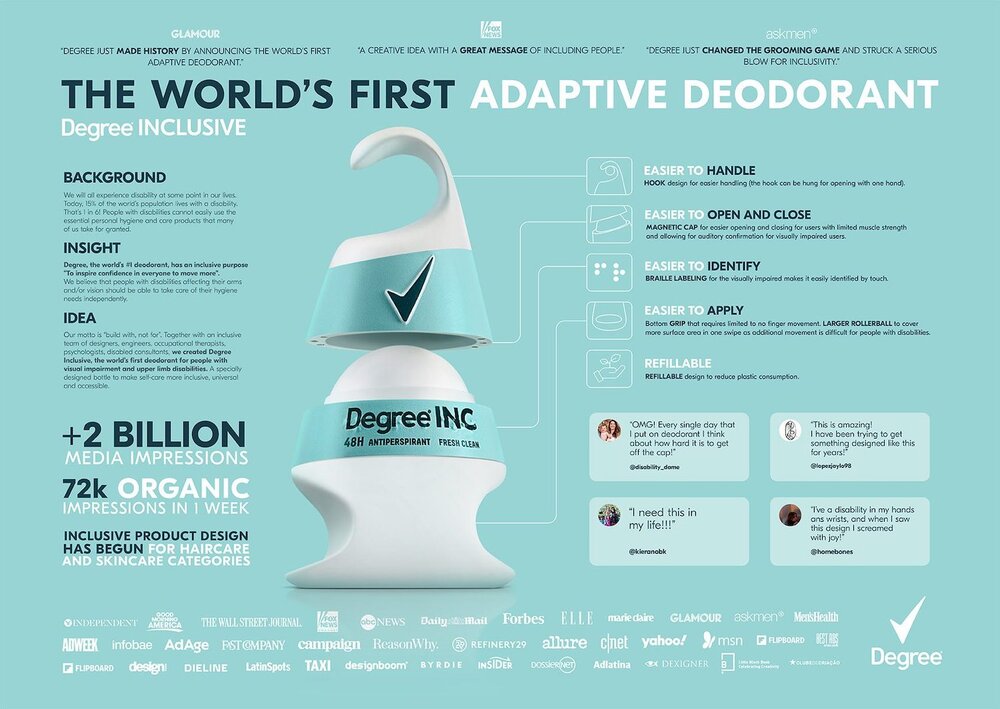
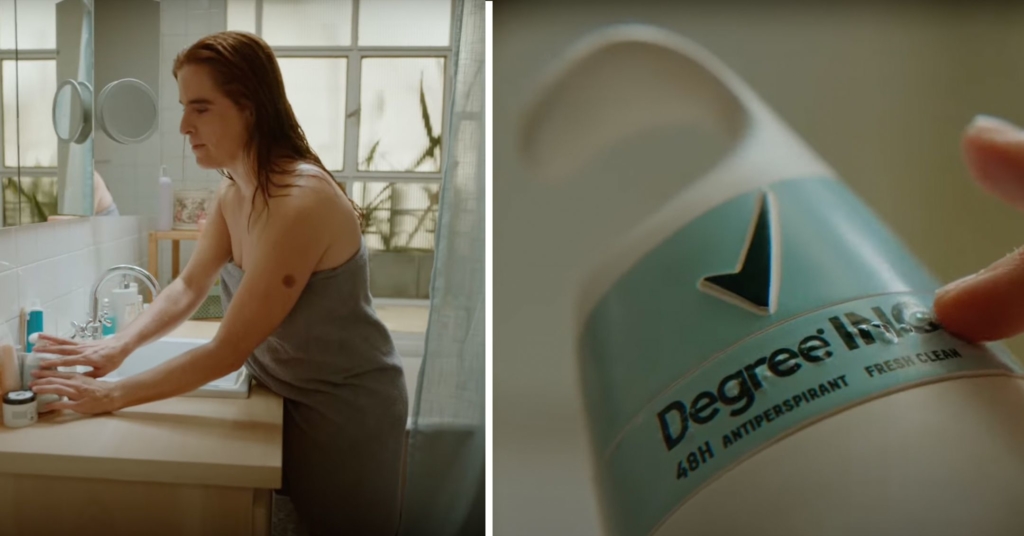
Even the virtual world can be inclusive. Venus has partnered with Animal Crossing to create avatars with diverse skin and body features, including vitiligo, tattoos, stretch marks, cellulite and prosthetic limbs.
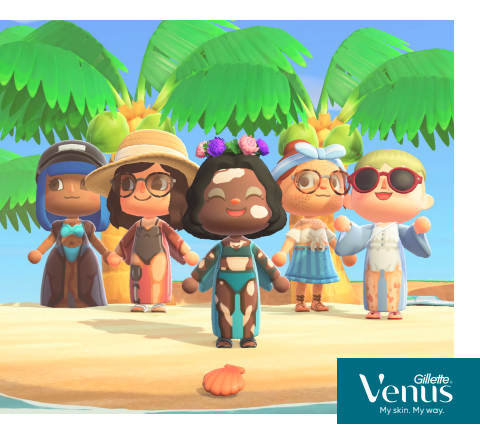
New beauty brand Superfluid features a diverse range of models with real bodies and real skin types including models with rosacea, psoriasis, wrinkles and stretch marks proudly on display.
Fenty Beauty was a trailblazer in inclusive beauty with a product line that includes 50 shades of foundation and truly represents all skin tones. Following in Fenty’s footsteps are Huda Beauty, who has expanded their Faux Filter foundation line to 39 different shades, and Urban Skin RX, whose mission is “representing and advocating for accessible clinical skincare for diverse skin tones so that we can create a world in which we can all feel beautiful, confident and empowered by the skin we’re in,” according to founder Rachel Roff.
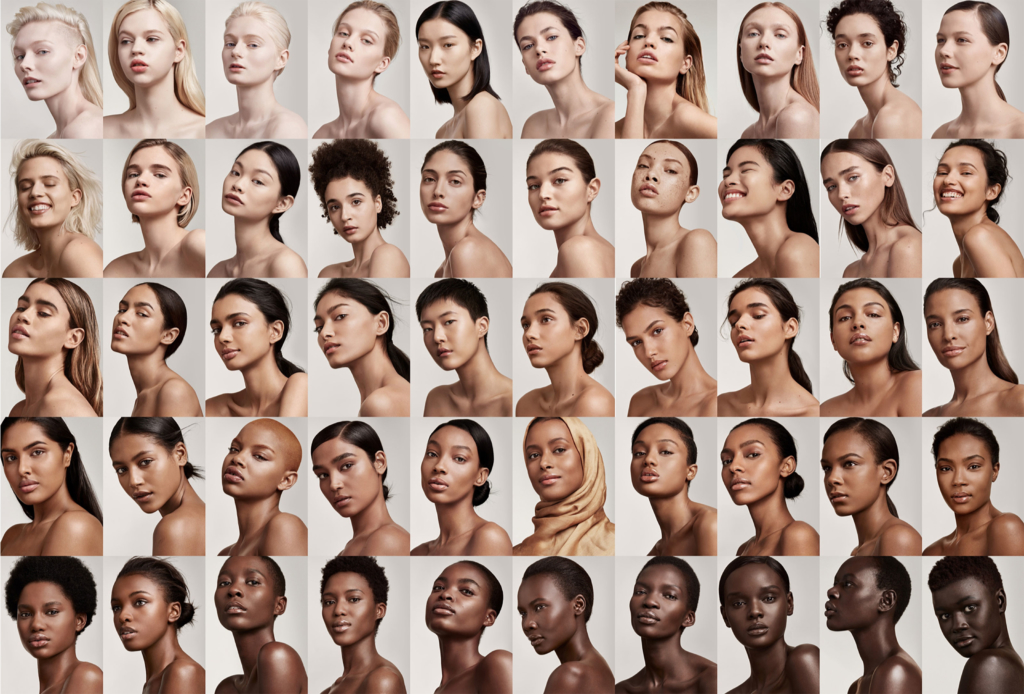
Aesop is known for their minimal, unisex packaging and has been an early adopter of in premium genderless branding.
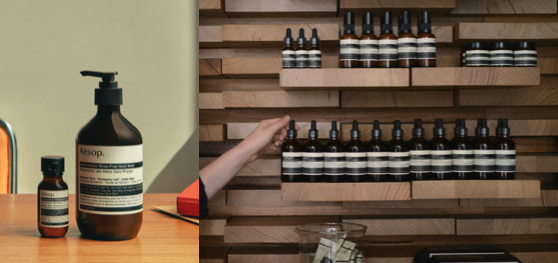
Ursa Major’s genderless personal care offerings include shaving creams, deodorants, moisturizer, body washes and other products that have unisex packaging and scents for everyone to enjoy such as “cedar and spearmint”, “birch and sunflower”, “geranium and sage” and more!
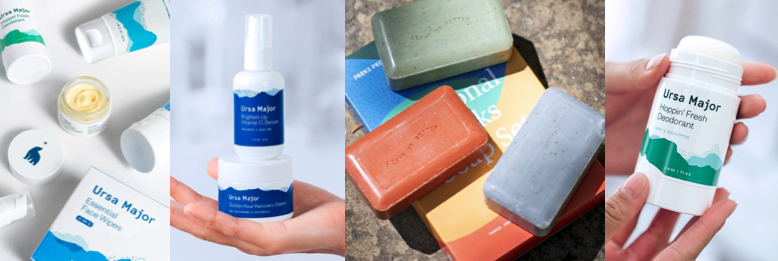
As of January 2020, all Herbal Essences shampoos and conditioners have tactile differentiations to alleviate confusion and help consumers, especially those with low vision, shower with confidence.
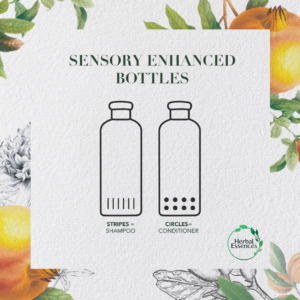
Unilever is eliminating the word “normal” from the packaging of all of its beauty and personal care brands and is also banning excessive editing of models’ photos in order to challenge narrow definitions of beauty.
Victorialand Beuaty is a champion of accessibility, creating packaging that engages all the senses and provides a premium experience that doesn’t rely on sight. This is accomplished through the CyR.U.S system, a proprietary tactile recognition system comprised of a universal set of raised symbols placed on packaging to facilitate product identification and usage. Every product also includes a QR code feature that users can scan to provide auditory product descriptions and usage instructions. Being a beauty and skincare brand, this is of course all enhanced by the tactile and scent experience of the products themselves which can reveal a lot about each product and its benefits.
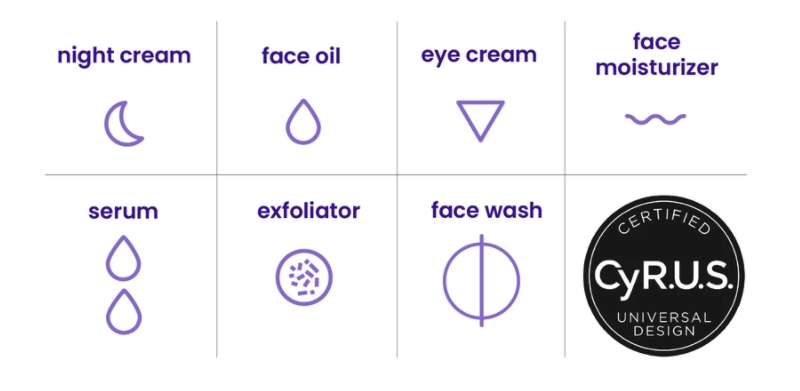
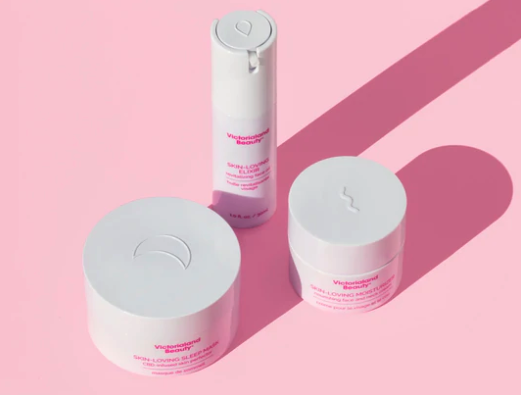
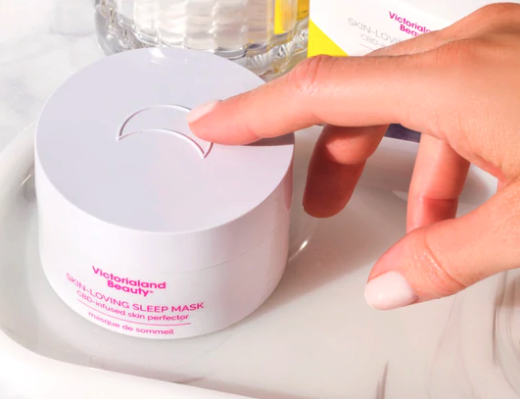
These brands, and many others, prove that the only barrier to true inclusivity is unwillingness to change. By prioritizing the needs of all people, beauty and personal care brands can secure their position as a right – not a luxury – in a space where all people feel seen and cared for. We’ll stay on the lookout for brands making strides towards more a more inclusive future and look forward to seeing the industry evolve in years to come.
At Smith Design, our culture is rooted in caring. We make a conscious and collective effort to translate our values into actions that benefit our staff, our clients, our community and our environment.




SIGN UP FOR OUR NEWSLETTER
©2022 SmithDesign, ALL RIGHTS RESERVED | Privacy Policy | 8 Budd Street, Morristown NJ 07960 | 973.429.2177